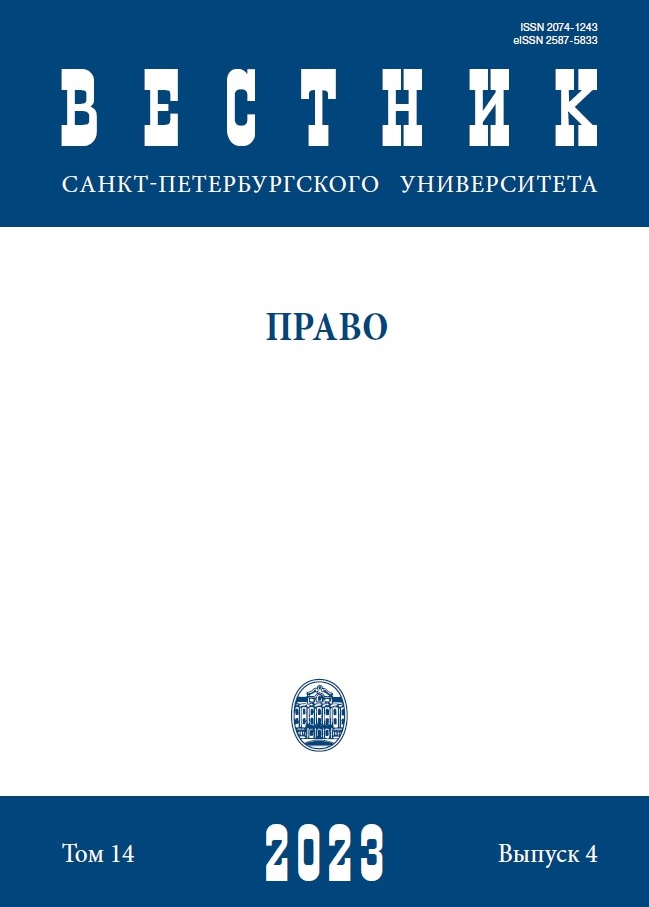The subject of proof and the burden of proof in civil proceedings in the Anglo-Saxon and continental legal systems of foreign countries
DOI:
https://doi.org/10.21638/spbu14.2023.414Аннотация
The article deals with the problems of the concept and legal nature of the subject of proof and the distribution of the burden of proof in civil proceedings in the countries of the Anglo-Saxon and continental legal systems. The authors point out the need for a fundamental revision of the Russian theory of evidence and making the necessary changes to procedural legislation, taking into account the positive experience of the legal regulation of the subject of proof in the procedural legislation of other states and the reception of certain positively tested norms of procedural legislation of foreign countries in terms of the regulation of the subject of proof and the distribution of the burden of proof in Russian procedural legislation. The authors note that the advantage of English and American law is the detailed consolidation of the mechanism of the disclosure of evidence and the sanctions for violation of its order, which amount to the inability to refer to evidence that has not been disclosed in accordance with the established procedure or disclosed with its violation. Currently, the rules for the disclosure of evidence are also fixed in the current civil procedural legislation. The sanctions for violation of the procedure for the disclosure of evidence have not been established. The paper notes that the legislative structure of the active role of the court in evidentiary activities according to the model of the French court could find consolidation in Russian civil proceedings. The authors conclude that the mechanism for determining the subject of proof is fixed in the procedural legislation of Russia, taking into account the type of substantive law applicable to disputed legal relations, detailing the general rule for the distribution of the burden of proof, fixing the mechanism of private rules for the distribution of the burden of proof.
Ключевые слова:
Russian procedural legislation, the law of evidence, the subject of proof, the burden of proof
Скачивания
Библиографические ссылки
Загрузки
Опубликован
Как цитировать
Выпуск
Раздел
Лицензия
Статьи журнала «Вестник Санкт-Петербургского университета. Право» находятся в открытом доступе и распространяются в соответствии с условиями Лицензионного Договора с Санкт-Петербургским государственным университетом, который бесплатно предоставляет авторам неограниченное распространение и самостоятельное архивирование.






